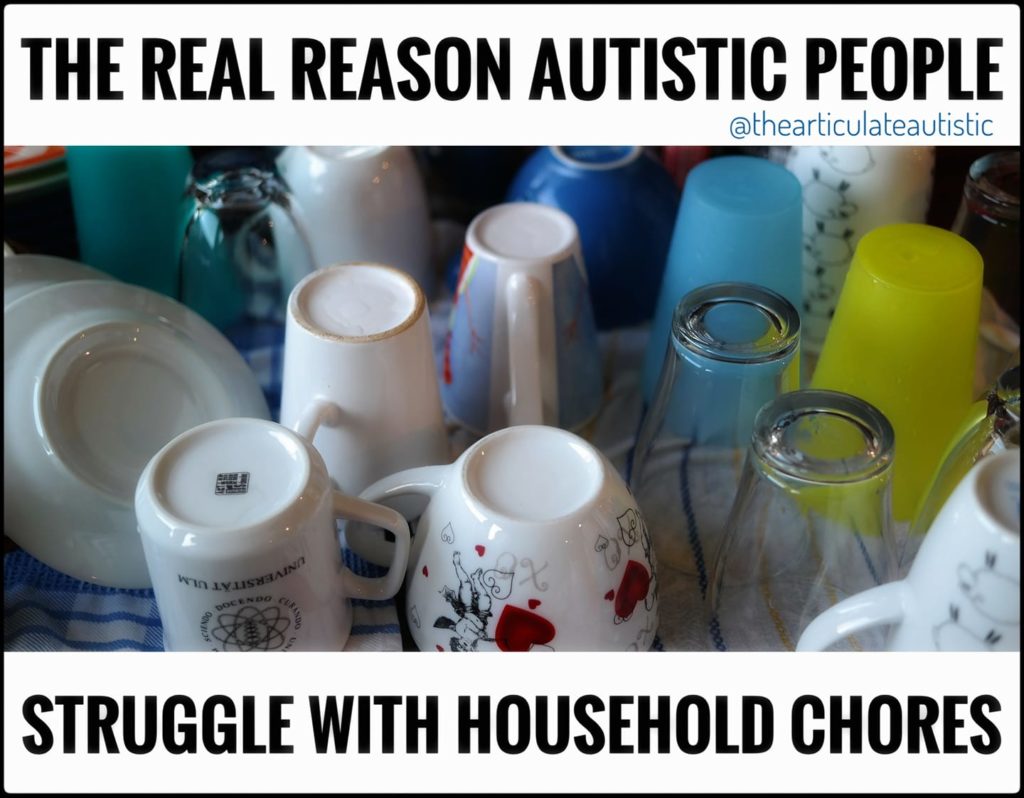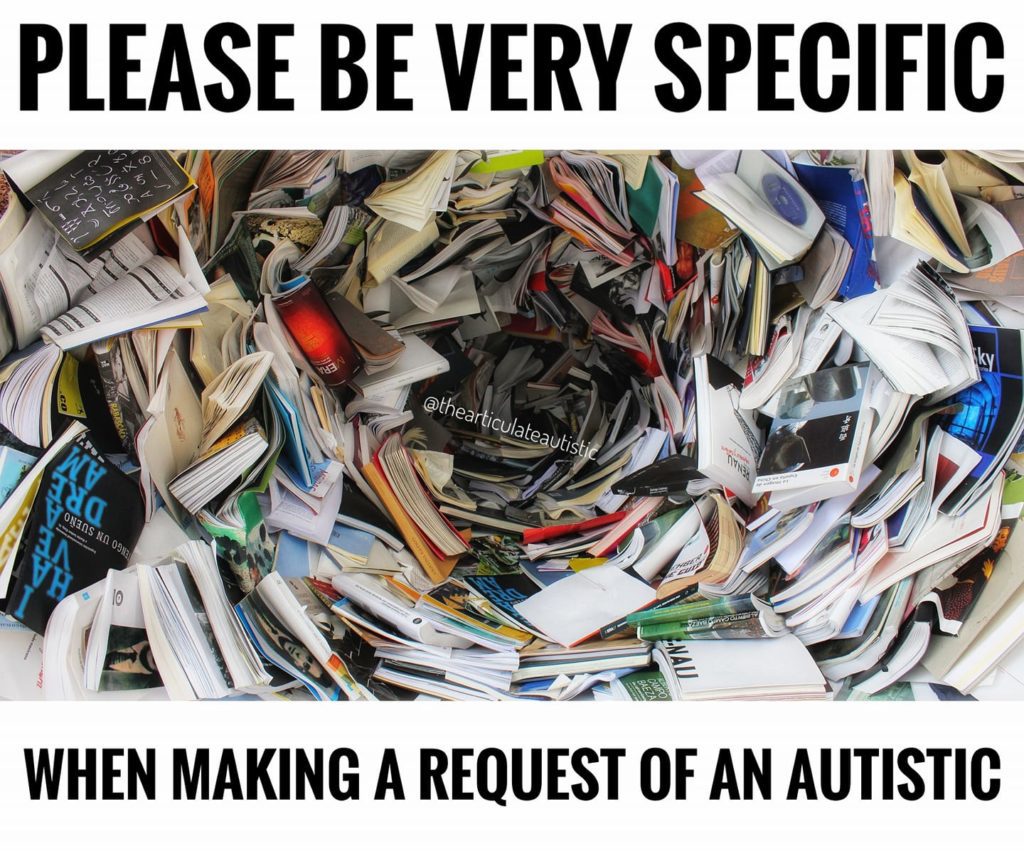The Real Reason Autistic People Struggle With Household Chores

Neurotypicals who live with autistics, have you ever wondered why a sinkful of dishes just hangs out for days? Have you ever gotten irritated because unfolded laundry will stay that way for a week on the bottom stair landing? Have you scratched your head at the dust and dirt all over the kitchen floor that STILL hasn’t been swept?
You don’t get it. There are chores to be done, there are unpleasant SMELLS in the house, yet you seem to get no help at all! Why?
You’re not specifically asking for it.
Someone commented on one of my posts the other day about something I’d never heard before. She called it, “autonomous initiative”. There’s no dictionary definition for it, but from putting the two words together, it seems to mean, “the ability to see a task that needs doing on your own and then doing said task without any prompting”.
Most of us can’t do that. We don’t have autonomous initiative.
This could be for several reasons:
1) It’s not a part of our routine, so it doesn’t exist other than background noise, if you will.
2) We may see the dishes, the laundry, the dirt, etc., but those things do not trigger any type of response other than a passing notice (if that).
3) Something has always been done for us, and now that we are a certain age, you think we should be taking on the responsibility ourselves, but nobody told us.
Again, unless we are given explicit instructions and told to do something, it will not even enter our minds to do it. The thought simply doesn’t form.
(Apparently, neurotypical people just know what to do in these situations…which fascinates me, by the way.)
Autistics do not.
(Article continues below.)
The best way to improve communication with your autistic loved one is to understand how your autistic loved one’s mind works! Intentions, motivations, and personal expressions (facial expressions or lack thereof, body language, etc.), are often quite different in autistic people than they are in neurotypical people.
Experience a better understanding of your autistic loved one by reading books about life from an autistic perspective as well as stories that feature autistic characters. You’ll have so many “Ah ha!” moments and start seeing your autistic loved one in a different light (and you’ll have a better understanding of their behaviors, which you may have been misinterpreting up until now).
Books I recommend for a better understanding of your autistic loved one:
Now, having said that, household chores can become a part of our routine, and we will do them the way we are taught and according to our ability with little to no variation.
We can make lists, set reminders, or just do certain chores on certain days. As our loved ones, it will not always be necessary to stand over us forever to do tell us to do something once it becomes a part of our routine. We’ll usually just do it.
However, and this is very important, as soon as the environment changes, our ability to take initiative disappears.
For example, if we’re at home, we may know the dishes get done every night after supper and the trash goes to the curb on Wednesday nights (I still have a reminder on my own phone for that, and I’ve been living in the same place for over 3 years). However, if we are anywhere else; grandma’s house, a party next door, an event, etc., if there’s something that needs to be done, we will NOT have the faintest clue what that is unless we are told.
And if we panic and just do something to do it, we will more than likely cause more challenges than we fix because we can’t “read the room” and figure out exactly what to do.
Are you looking for more help on communicating effectively with your autistic loved one? Click on the photo below to learn more about the importance of being specific when asking us to do something.

Follow me on Instagram.
Want downloadable, PDF-format copies of these blog posts to print and use with your loved ones or small class? Click here to become a Patreon supporter!








As the parent of 2 autistic teens I was glad to read this post. It may help me with the help of the recommended reading I might be able to get some cooperation. 1is ADHD and the other is ADD w/ some brain damage. So imagine exact opposites in puberty. I think I need a miracle.
Wow, wonderful blog structure! How lengthy have you been running a blog for?
you made blogging look easy. The entire look of your website is excellent,
let alone the content material! You can see similar: sklep
and here ecommerce
When I get “read the room” comments, I ask them if they would say that to a blind person when they trip over furniture. They know how to dodge the furniture in their own hones, why not in someone else’s? Furniture is furniture, right? Chores are chores, right?
That’s brilliant! I love that!
Any tips on handling the guilt when the comments come up? I want to help I just don’t understand when it’s needed and therefore my mom is constantly telling me I’m lazy and I let it get me spiraling☹️
Jaklyn, I’m sorry that’s happening. You can’t help having executive function challenges. I’d be happy to help mediate and explain things to your mom, if you’d like. I offer consultations.